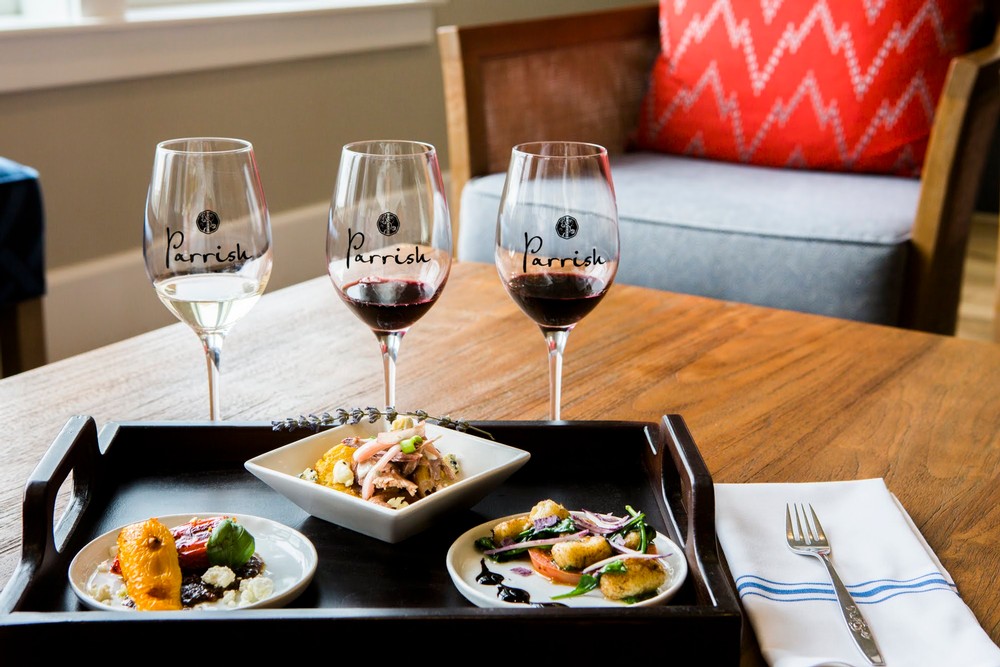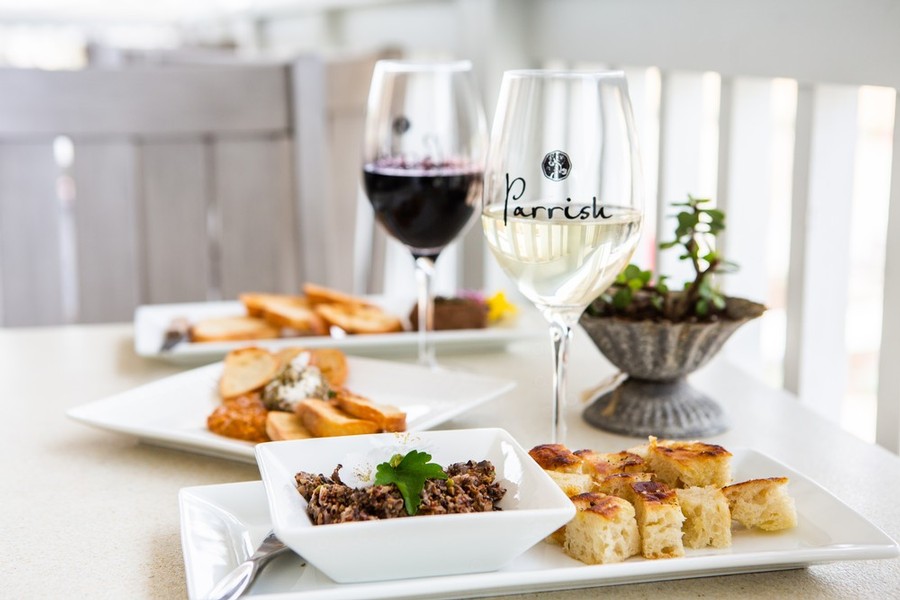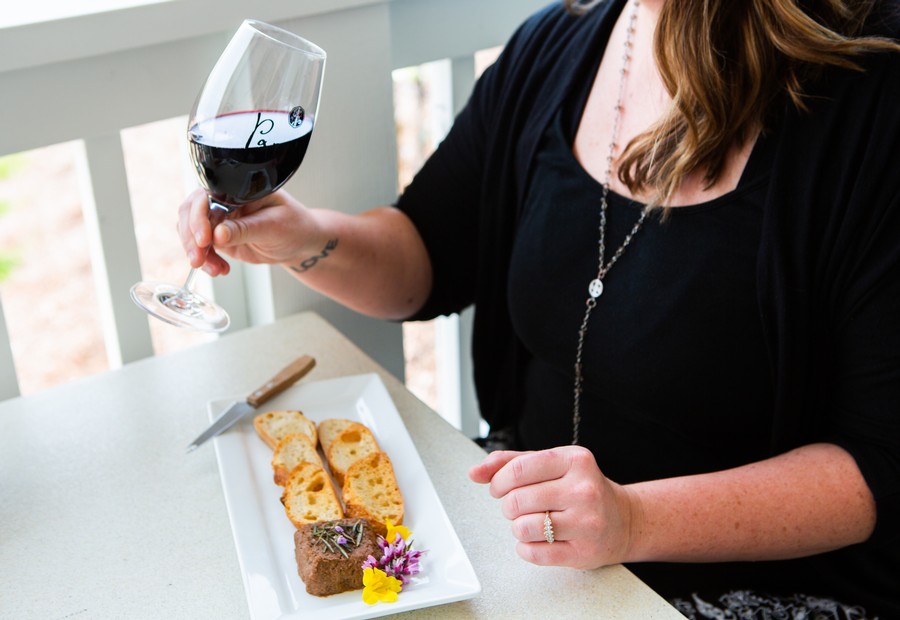Parrish Family Vineyard Blog
Keep up with the Parrish Family Vineyard!
Vines & Wines
Discover more about the Parrish vineyards & winery.
Wine & Food
Wine and food offerings and pairings.
Events
Learn more about upcoming Parrish events & specials!
Visit Paso Robles
Visiting Paso Robles soon? Learn of wineries, food, and lodging for your next trip to Paso Robles' wine country.
The Importance of Mechanical Cultivation
Tilling from Parrish Family Vineyard on Vimeo.
It's a busy time of year in the vineyard as crews are working with fruit set and the abundance of healthy leaves on the vines.
Winemaker David Parrish took us into the vineyard in this short video to explain the Mechanical Cultivation process. It's an important part of our sustainability efforts because it keeps us from having to spray anything on the vines or the weeds. It's an expensive process and not one that a lot of wineries are able to afford, but it does produce healthier vines which create better wines.
Click here to watch the video and don't forget to have your volume up!
Take a Minute: Bud Break
Bud Break from Parrish Family Vineyard on Vimeo.
Further explanation: Bare lines of vines, a coo of a pigeon in the distance, and the crackling of footsteps as a vineyard manager passes through the rows in the morning light. He has done this many mornings, but his steps stop as he notices something different. There it is…light green, soft, even a little fuzzy…it is a bud.
Each year we eagerly wait for bud break to occur. This is when the vines push open leaves much like other plants during the spring. Dormant vines awake when daylight and temperatures increase, which encourages the vines to pull up stored water and macro-nutrients (nitrogen, phosphorus, potassium) from the roots to the limbs. This up-flow of water and nutrients push open the buds. You would think that after leaves push open that it would mean photosynthesis would occur immediately, but it does not. It takes the vine a little bit of time, leaves the size of about silver dollars, before that process begins.
One of the most important parts of bud break is that it is a measurable starting point for the vineyard. We can actually start the clock for when pivotal moments will occur. For instance, we now know we are about 150 to 200 days away from harvest depending on the grape variety. It seems like this then would mean that bud break itself is actually a markable date, but it’s not that simple. This is still farming, which means everything is variable. When bud break occurs depends on a few things. Each terroir is different. And you can probably guess, each variety of is different.
A cooler terroir means that bud break will be later, while a warm terroir like in Paso Robles, CA will have an earlier bud break. In Paso Robles, we have seen buds as early as February. Although for us this year (2018) we are running a little slower as we have had a cooler spring. Each year is different! Another factor is micro-terroir. The difference between locations of vines in a single vineyard will even come into play. A hillside vine will have bud break because of its elevation, but a lower valley vine will still be dormant. Lastly, varieties will have bud break at different times. In our Adelaida Vineyard, our Malbec and Cabernet Franc had bud break first, but the Cabernet Sauvignon hit the snooze button. As you can see, there are many variables that go into this and this is just one part of the vine cycle!
While there are variances in the cycle, one consistent thing is temperature. Vines are very dependent and particular about temperature. Vines prefer gradual temperature increases for bud break, but they don’t always get that. Sometimes they get awoken from slumber with a warming trend and then hit with a freeze. That is why vineyards have tall fans to help with frost protection. A freeze will damage the cellular tissue in the leaves and the leaves will then turn black. It’s awful. This then kills the growth for your year and can sometimes decimate a vineyard. Bud break is basically the infancy stage of the vine. You want to protect it because the leaves are soft and fragile at this stage, much like you would with a newborn (and well, we all know parenting doesn’t stop there). So, that is the one thing all farmers can count on is frost season and the need to be vigilant.
After bud break, we now watch as the leaves begin to grow (obviously). Photosynthesis will begin at a certain point and once that happens the shoots of the vines will really take off as the vines will receive something that they love, much like humans, carbs! Up next is flowering, so stay tuned.
New Paired Tasting Flight Experience

This Friday, April 12th, marks the beginning of a new wine & food offering at Parrish Family Vineyard. For many years, Owner and Winemaker, David Parrish and his daughter and General Manager, Cecily Parrish Ray, envisioned offering unique food pairings to accompany their Estate wines. Estate Chef, Rachel Ponce, shares the same vision as David and Cecily to create decadent, wine focused food pairings and offerings. She creates an experience with the new Paired Flight that is unparalleled to what Parrish has offered before.
The entire flight is untraditional and showcases Chef Rachel’s creativity. Her use of ingredients help pull out different elements of the wine, which makes it a fun discovery of how food can work with wine in unexpected ways.
You are invited to join Parrish Family Vineyard for this new wine and food experience on the weekends, Fridays through Sundays, from 11am-4pm. The menu will change with the seasons.
Sauvignon Blanc paired with Grilled Chicken Stuffed Sweet Peppers
Petite Sirah paired with Coffee Crusted Duck Confit
Cabernet Sauvignon paired with Potato Dumplings with Heirloom Tomatoes
New Menu Released for Spring

Join us as we release our new dishes for Spring on Friday, April 5th! Chef Rachel shares unique, wine focused dishes that create harmonious relationships with our Estate wines. These new dishes are shareable and perfect for a light lunch on our porch.
-Herb Goat Cheese & Red Pepper Pesto with Handcrafted Sourdough Crostini
-Wild Mushroom & Olive Tapenade with in house Focaccia
-Walnut & Lentil Pate with Handcrafted Sourdough Crostini
Also, starting April 13th, join us for the release of our new Paired Tasting Flight. We are excited to see you soon!

Racking
Take a Minute: Racking from Parrish Family Vineyard on Vimeo.
There are 3 times lees racking is done in wine making...
1st racking - Grape solids that are in the tanks
2nd racking - Done 2 to 3 months later in the barrel, lees usually are dead yeast cells and some leftover grape sediment
3rd racking - Happens at the very end of barrel aging, tend to be long-chain tannins that fall out of solution
Blending
Ethan Ray, Cellar Master, takes a minute to share about the wine they are blending and why. Watch the video to find out, which blend they are working on!